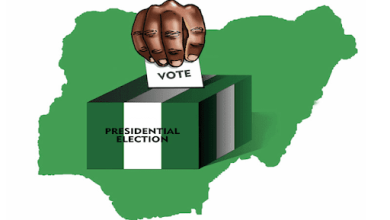
|
Getting your Trinity Audio player ready...
|
Ushie Uguamaye sat down there before her phone camera, her eyes dripping tears, her voice shaking with frustration as she spoke. “…It doesn’t make any sense that a crate of eggs would cost #6,500. I literally can’t remember when it costs #800…” she asked, her words carrying the weight of millions of struggling young Nigerians.
In just a few minutes, her lament went viral, echoing across social media like a national outcry, a raw, unfiltered glimpse into the growing despair of a generation caught between patriotic duty and public criticism over economic hardship.
This wasn’t just one woman’s frustration; it was the voice of an entire youth population grappling with inflation, unemployment, and a government seemingly indifferent to their plight. The video, which sparked heated debates, reignited pressing conversations about youth development, governance failures, and the freedom of expression in a nation where economic survival has become a daily battle, I doubt even the fittest could survive. As the dust settles on yet another viral moment, one question remains: How much longer can Nigeria’s youth endure this harsh reality before hope comes knocking on the door?
Youth Development and Economic Hardship
The NYSC, established in 1973, aims to promote national unity and foster youth development by deploying graduates to various parts of the country for community service. However, the current economic climate has made this period particularly challenging. Despite the national minimum wage being ₦70,000, corps members continue to receive a monthly allowance of ₦33,000, a figure that has remained stagnant amid rising inflation and living costs. This disparity has led to widespread dissatisfaction among corps members, many of whom struggle to cover basic expenses such as food, transportation, and accommodation.
The economic reforms implemented by President Bola Tinubu’s administration, including the removal of fuel subsidies and the devaluation of the naira, have increased the financial strain on citizens. These measures, while intended to stabilize the economy, have led to increased prices for essential commodities and services, disproportionately affecting young Nigerians who are often at the beginning of their careers or still seeking stable employment or business ventures.
Governance and public criticism
As typical of the Nigerian government, the response to public criticism has been a subject of concern. I really do not intend to go deep into the memory of the government’s reaction to public criticism, but let me start with the protests of women and children in Niger state over the rising cost of food items and insecurity in February 2024. The ordeal, however, was not treated in the manner of becoming a democratic government; rather, the authorities arrested participants in that demonstration.
In addition, and perhaps the biggest ever since the assumption of President Tinubu, in August 2024, widespread protests erupted over the escalating cost of living, leading to a crackdown by security forces. Amnesty International reported that Nigerian police used excessive force during these demonstrations, resulting in at least 24 deaths across several states.
Furthermore, in September 2024, ten individuals were charged with treason and inciting the military to mutiny following their participation in the protests. These charges, which carry the death penalty, have been criticised by human rights organisations as attempts to suppress dissent and intimidate citizens from exercising their constitutional right to peaceful assembly and expression.
In the same vein as the few discussed above in this piece, Uguamaye has faced threat from the NYSC authorities over her public criticism of the country’s economic hardship. She has also faced media scrutiny from fellow Nigerians, both within the country and abroad, instigating that such public criticism of Tinubu’s government is considered sedition or an attempt to ridicule the president and bring down his government.
The role of Amnesty International in governance and criticism
Several battles and vocal altercations have emerged with this viral video, criticizing the government’s neglect of the economic situation in the country. While some have vehemently shown their grievance against Uguamaye’s criticism others like Amnesty International (AI) has played a pivotal role in documenting and bringing attention to human rights violations in Nigeria.
AI have gone in their usual fashion to defend her public criticism, explaining to the NYSC authorities that she was exercising her freedom of speech and besides, it is not magic or a mirage that Nigeria is having a very difficult economic situation that needs either Divine or very intentional government intervention. Why should the government threaten its citizens instead of using its powers to protect them? Again, why should the government resort to intimidating its citizens to voice out their frustration due to the poor economic situation? Rather than the government being interested in patriotism and devotion to constituted authority, they should set their lens on viewing human survival first. If Uguamaye was the president’s child, would she face sanctions and threats for her public criticism? A food for thought!
Conclusion
The viral video of Ushie Uguamaye’s lamentation is a strong reminder of the challenges facing Nigerian youth today. It underscores the urgent need for the government to address economic disparities, ensure fair compensation for public servants, and respect citizens’ rights to express their grievances without fear of retribution. Organisations like Amnesty International are crucial in shining a light on these issues, advocating for justice, and promoting a culture of accountability and good governance. As Nigeria navigates its economic and political landscape, it is imperative that the voices of its youth are heard and that their concerns are addressed through inclusive and transparent governance.
Editor’s note: Crispng first published this post.






